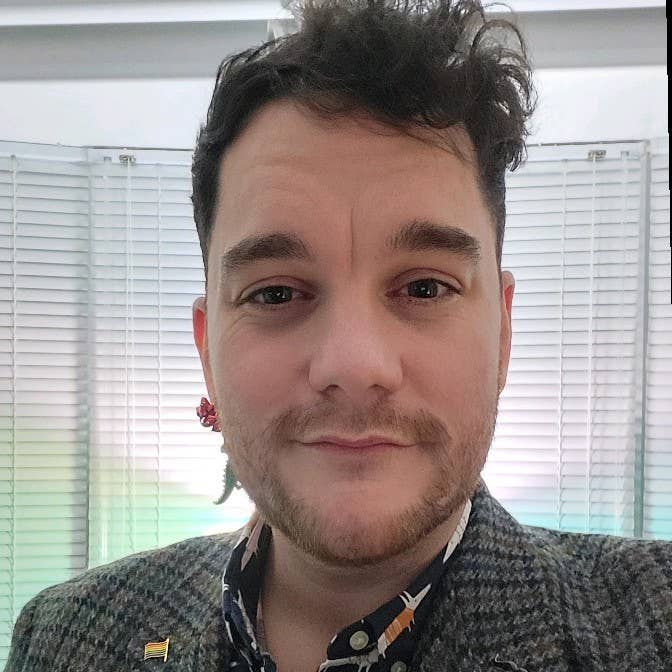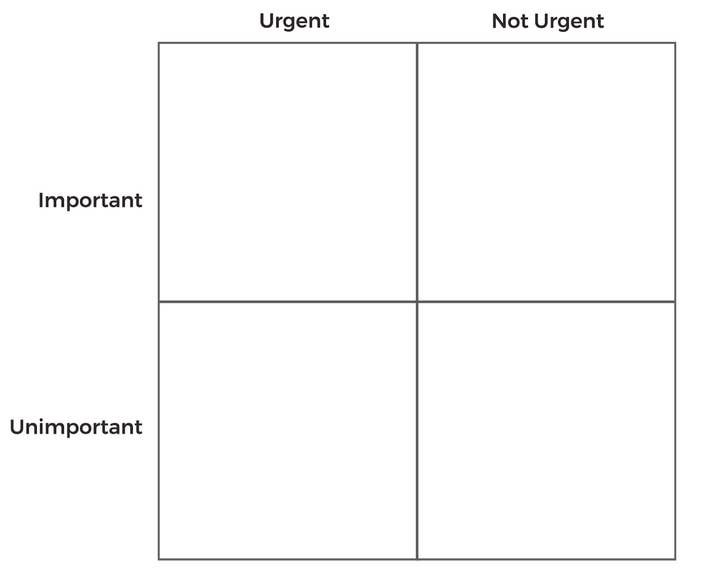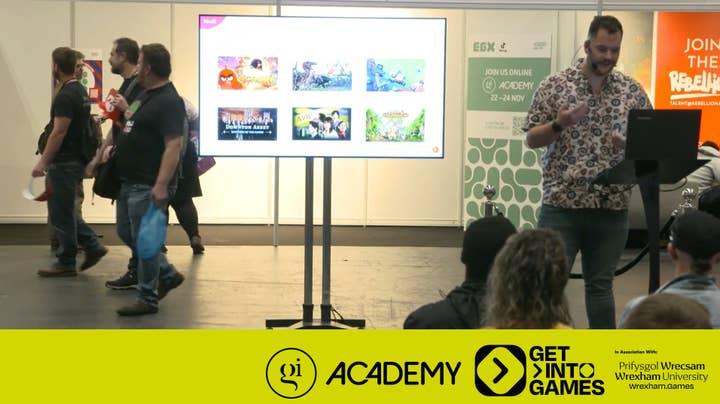An introduction to video game production
Media Molecule's Steven Taarland explains the role of a producer, and why it's all about prioritization, trust, and "learning to be comfortable with ambiguity"
This article is part of our Get into Games special, offering students insight on life in the games industry and advice on how to get into the business. You can also find aselection of the best Academy guides for job-seekers here
While many roles across game development do exactly what they say on the tin – artist, composer, programmer; it's hardly rocket science – one of the more essential roles is harder to define: producer.
Not only can the duties of a producer change from studio to studio, but almost from producer to producer, too.
During an EGX 2023 talk, Media Molecule's senior producer Steven Taarland – who's also a programme director for the IGDA Foundation and founder of queer-friendly game jam, Rainbow Game Jam – identified six key components common to most producer roles:
- Defining and understanding priorities, ensuring the most urgent work gets tackled first
- Building trust with your teams and being present and transparent as take on their feedback and deliver on your promises
- Continually iterating your processes on each stage of the project
- Learning to be comfortable with ambiguity
- Mitigating risks when you can, whilst remembering that sometimes innovation requires taking a few risks along the way
- Appreciating that failing is an opportunity for everyone to learn.
In this article, we'll explore Taarland's breakdown of a games producer's role for those who are considering this as a career path. You can also watch the full talk below:
What is a video game producer?
Production roles generally focus on overseeing the development of a project such as a video game.
"[This includes] managing the development team to schedule stakeholders, publishers, external teams and budgets for a project," Taarland explained. "This may vary depending on the studio or projects, and different stages of projects require different skills, workflows, and processes. It requires a varied, ever-changing number of skills, and can often feel like you're spinning a lot of plates, or that you need a lot of hands to be able to keep on top of your work."
Ultimately, though, the goal of production is "to deliver a high-quality game on time, on budget, and with a happy and productive team."
Producers use the tools and data at their disposal to make the "best decisions possible" to ensure that the team is able to deliver a product within set parameters and removing obstacles – both known and unforeseen – that may crop up along the way.
If that sounds like a lot, that's because it is. It can also be a difficult balancing act, too, requiring compromise in order to deliver a game on time. Otherwise, dates and deadlines can slip, studios release buggy games, or teams are subjected to crunch.
What do video game producers do?
Unlike disciplines like art and programming, which have clear expectations around skills and are generally consistent across the industry, the role and goals of a producer depend on the company they work at.
"The day-to-day skill requirements and responsibilities of a producer will vary massively between different studios," Taarland explains. "It's a very non-standardised role, and often can involve wearing multiple hats."
That's not all that changes from studio to studio, though – even the job titles given to producers can vary across the industry. Some producers are called development managers, for example. It's always best to fully read a job description to ascertain how much oversight and responsibility a role may have to better understand its seniority.
"[Being a producer] requires a varied, ever-changing number of skills, and can often feel like you're spinning a lot of plates or that you need a lot of hands"
For those looking for entry-level jobs, Taarland suggests looking for junior or associate producer roles, whilst developers with significant production experience may be looking for titles like senior leads or principal producers, then executive producers or production directors. Here's their definition for these three tiers:
- Junior producers: Their focus may be on the day-to-day of a team, supporting it and helping it get tasks done, making sure that they're finishing their work on a "sprint-to-sprint basis"
- Associate/mid-level producers: These will start to look ahead of a project and less at the day-to-day. These roles are more about supporting larger teams and making sure that they are delivering work for a deadline, removing blockers as they're identified
- Senior producers/directors: Senior roles look further ahead in the project, have a good oversight of an entire development roadmap, and may be responsible for large or multiple teams in the studio, or even responsible for multiple projects

"Different studios may also have specialized production tools such as art, tech, narrative design, or just any other discipline producers," Taarland added. "These roles tend to be in large studios with huge teams, where producers have a more in-depth and specialized knowledge of the teams that they're working with.
"Alternatively, like in my career, a producer can have a slightly more generic role and work with multi-cross-disciplinary teams, and have a broader knowledge base rather than a deep knowledge base in one particular area.
"From the outside, a production role can look like a barrage of meetings, interspersed with asking your team to update their JIRA tickets!" they laughed. "However, the actual day-to-day is always in aid of the project moving forward, be that liaising between teams and departments to ensure that they are collaborating, identifying risks and mitigating them, working with leads and stakeholders to plan the development of the project, or forecasting and reporting on the development and ensuring milestones are delivered."
Difficulties of video game production
While some aspects of video game production may sound easy on paper, Taarland is keen to stress that production is still a discipline like other game development craft, and there are plenty of traps and pitfalls which can make it difficult to keep a project on track or divert your focus, particularly if you're a little risk-averse.
Risk mitigation
A producer's decisions should be well informed, but Taarland noted that sometimes they have to make some decisions without all of the information.
"The risk here is that we can't fully forecast how these scenarios are going to play out," they continued. "In these scenarios, it's best to make sure that you have a Plan B for when further data arrives and you need to pivot direction with your team.
"Work might be lost, but it also gives you and your team the opportunity to learn. And it's better to fail fast than to have not tried anything at all."
There are several reasons why a producer may be risk averse:
- They may not have enough quantitative data at hand to make the decision, or may be relying on secondhand or limited information;
- There may be huge risks on both sides, and they may not be able to foresee what the results of those risks could be;
- They may be waiting for external validation from stakeholders who are busy or can't agree a way forward;
- They may lack the autonomy needed to sign off decisions without going to others for permission.
"I can't stress enough how important risk mitigation is for a producer," Taarland said. "But we work in an innovative industry with creative people. And there are a lot of unknowns and opportunities in video games. So an important skill for producers is learning to be comfortable with ambiguity and not knowing how something is going to turn out.
"Learning to be comfortable with ambiguity and knowing where to take risks with development can take a hell of a long time. But there are ways to become more comfortable with this."
Prioritization
Taarland is keen to stress that production is still a discipline like other game development craft, and there are plenty of traps and pitfalls which can make it difficult to keep a project on track or divert your focus.
"The day-to-day [role of a producer] is always in aid of the project moving forward"
"Being completely honest, I have fallen into these pitfalls in my career several times," they admitted. "And sometimes the project may just be in a situation where you have to deal with the cards that you're dealt with. You may be unable to get out of those pitfalls. This doesn't make you a bad producer. However, being able to recognize these as really important – and finding solutions to get out of them – is even better."
One of the biggest problems for producers? Time management, be that managing your own time management or that of your team.
Taarland suggested that routinely examining and revising priorities sits at the heart of this. It can be "very easy" to feel incredibly productive, but unless the work you're doing is a focused priority, you may "get sucked into a granular detail of day-to-day tasks and issues" which, in turn, creates bottlenecks in your production processes.
Do this routinely, and your team will start to distrust you, your processes, and your priorities, which then makes it harder to predict upcoming problems as they'll stop coming to you with potential issues.
Prioritization: why it's important, and how to do it
Perhaps unsurprisingly, then, Taarland put a lot of emphasis on producers being able to evaluate and prioritize work: both your own, and the work of your team.
They pointed to the Eisenhower Matrix, a tool that enables all kinds of managers to set, prioritize, delegate, or discard tasks completely.
First, put together a list of all the tasks or work that's waiting to be done, then rank each item by two measures: urgency and importance.
Prioritizing tasks by urgency and importance leads to four outcomes:
- urgent and important
- not urgent but important
- urgent but unimportant
- not urgent and not important.

"Urgent tasks are things you feel you need to react to straight away like emails, phone calls, texts, news, or incoming information," Taarland explained. "Important tasks are the ones that contribute to the long-term mission goals or values of the product or the teams that you work in. Using this process will help you identify an easy order in which to tackle your work.
"The urgent and important stuff you should obviously get done first – it's clearly a high priority. Not urgent but important work can be scheduled for a later day. Urgent but not important work can be delegated to someone else in your team if you have the capabilities of doing that. And finally, not urgent and not important work? Get rid of it! You don't need it! This is not going to contribute anything good to your project."
Don't forget, however, that what may not seem important to you may be of utmost importance to someone else, so in situations when you work with a large team or stakeholders, it's critical to communicate regularly and transparently so that all sides have clear and aligned expectations.
Trust: why you need it, and how to build it with effective processes
Taarland described trust as "the foundation that allows teams to collaborate effectively," adding that there are lots of ways to build that trust with your teams.
"Ultimately, it all comes back to being transparent, ensuring you are listening, and that you are sharing the right information at the right time when they need it."
But it's more than that, Taarland stressed. Trust is also built by empowering those around you to feedback on your work, too, and making them know that you will take the time to reflect on it meaningfully, and, where necessary, act upon it.
"Learning to be comfortable with ambiguity and knowing where to take risks with development can take a hell of a long time"
"Sometimes we don't always have the time to act on the feedback that we're given," they admitted. "It's important to ensure communications with teams and stakeholders is clear and concise. Make sure expectations are set with the teams so they know their goals and when to deliver them.
"Knowing that everyone is aligned around their work shows that you can trust your team to get the work done. And they will trust that you are there to support them."
Part of this is about the processes a producer uses. Yes, there can be resistance to new ones – an 'if it ain't broke, why fix it?' attitude perhaps – but without transparent processes that every member understands, Taarland believes this leaves a team working in a suboptimal way.
It's not just about having enough processes; it's about having the right process in place at the right time, too. Taarland exemplified this by explaining that you don't necessarily need a complex multi-step workflow requiring the sign-off of all of your tech leads and QA time during concept development. But when you're working with a live product and have patches going out to millions of players? Then, testing is vital.
"Start using your processes, evaluate them, find what works and what doesn't and get rid of the things that don't. Just keep iterating and keep moving. As long as things are always improving, your team is going to feel better for it, and they're going to enjoy working within your processes. Processes and production are a fine balancing act.
"It's really important to strike the right balance of complexity with your team and with your stakeholders for your processes. Always ensure that you're able to gather the data needed to maintain a good vision of the project and be able to maintain stability and quality. It's also critical for teams to understand your processes – what the process is, and the rationale behind it. You can have the perfect backlog of user stories but if the team aren't updating their tickets, what's the point? Buy in and trust in both you as a producer and your processes are really important."
How can I become a producer?
Are you skilled in leadership and communication, or a savvy project manager? Or are you a talented risk analyst or experienced in conflict resolution? Taarland said all of those skills are valuable in video game production, which means that as well as following traditional routes, some well-respected producers developed their skills far beyond the video game industry. Others started their gaming careers in complementary disciplines, such as programming, design, QA, or community manager.
As well as video game-specific degree courses, Taarland suggested that even generalized business and management or project management courses could "equip you with the fundamental skills that will work in production."
"Production is a leadership role. And individuals with strong communication skills who can work methodically and enjoy problem-solving can make a great producer"
"Something I really love about seeing producers who have a background in a different kind of discipline is how they apply that knowledge in their role," they explained. "It helps build trust in the teams that they work in.
"Early in my production career, I definitely found my programming background to be a huge strength. It helped me take complex systems and risks that the teams were describing to me, and translate them in ways that clients and stakeholders who are not as technical could understand.
"Inherently, production is a leadership role. And individuals with strong communication skills who can work methodically and enjoy problem-solving can make a great producer. You can learn the finer details of game development along the way."
This article is part of our Get into Games special. You can find more talks and panels via the video links here, and a selection of the best Academy guides for job-seekers here.










